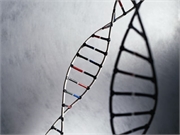Based on self-reported data, gap remains between guideline recommendations and clinical practice
FRIDAY, May 22, 2020 (HealthDay News) — Only 3 percent of patients with autism spectrum disorder (ASD) report having received all recommended clinical genetic testing, according to a research letter published online May 13 in JAMA Psychiatry.
Daniel Moreno-De-Luca, M.D., from the Warren Alpert Medical School of Brown University in Providence, Rhode Island, and colleagues analyzed self-reported data and medical records, when available, from 1,280 participants (age range, 1.75 years to 68.48 years) in the Rhode Island Consortium for Autism Research and Treatment study. Patients were recruited between April 1, 2013, and April 30, 2019. ASD diagnosis was confirmed using the Autism Diagnostic Observation Schedule, Second Edition (ADOS-2).
The researchers found that 16.5 percent of patients reported having received some genetic testing (Fragile X: 13.2 percent; karyotype: 7.2 percent; and chromosomal microarray: 4.5 percent). Only 3 percent of participants reported having received both recommended tests (Fragile X and chromosomal microarray). Nearly one in 10 (9.4 percent) reported that they were unsure whether they had received any testing. Genetic testing was more common among participants diagnosed at an earlier age (mean age, 4.2 versus 6.1 years), with greater ASD severity (mean ADOS-2, 7.33 versus 6.99), and with higher frequency of intellectual disability (odds ratio, 3.327) and epilepsy (odds ratio, 3.093).
“Addressing the barriers to testing is crucial to enhance the implementation of genetic testing in clinical practice so that every person with ASD can receive optimal care,” the authors write.
Copyright © 2020 HealthDay. All rights reserved.








